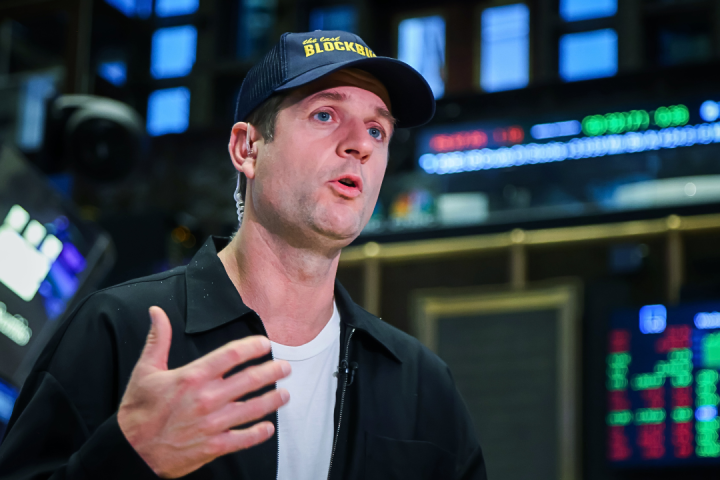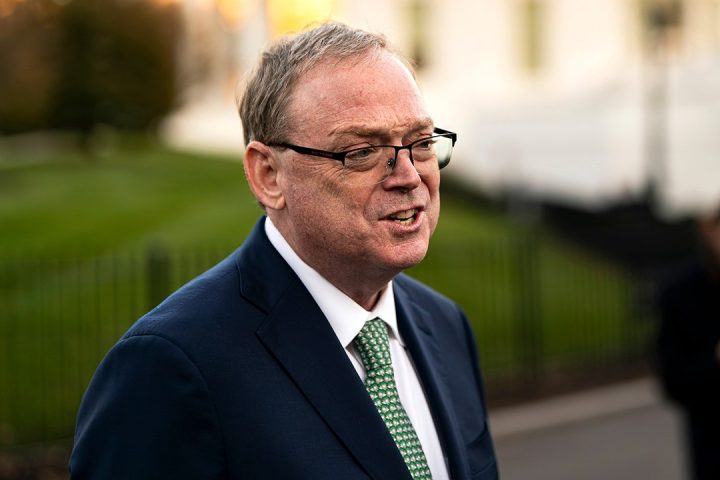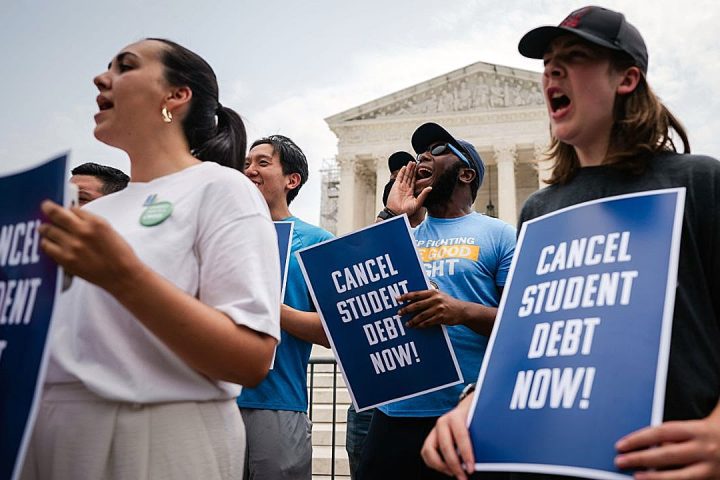If the unemployment rate slightly rises to 4.0% or higher this month, it could signal a recession in October, according to a mathematical model that correctly projected the 2020 recession.
Should the unemployment rate rise to 4.0% or higher in September, the probability of a recession to occur at the end of October is 73%, according to the model developed by engineer Georg Vrba and RecessionAlert.com CEO Dwaine van Vuuren.
“For what is considered to be a lagging indicator of the economy, the unemployment rate provides surprisingly good signals for the beginnings and ends of recessions,” the analysts wrote in a 2012 post after the model was initially published. The model takes into account economic data and recessions dating back to 1948.
Most recently, the unemployment rate stood at 3.8% in August, up from 3.5% in July, according to the latest jobs report data from the Bureau of Labor Statistics (BLS). The spike brought the number of unemployed people in America to 6.4 million, the BLS reported.
If you’re worried about a potential recession, you can pay off high-interest debt now by taking out a personal loan with a lower interest rate, which could reduce your monthly payments. Visit Credible to speak with an expert and get your questions answered.
GDP GROWTH FOR Q2 DIPS ON SECOND ESTIMATE
Fed’s interest rate hikes could precede recession
This month, the Federal Reserve will determine whether to raise interest rates again following 11 hikes since last year in order to push inflation down to its 2% target range.
But inflation rose annually to 3.7% in August, according to the latest BLS data. That could open the door for another interest rate hike this year, even if a pause follows in September.
“In what seems a remarkable U-turn, over 90% of market participants are now predicting the Fed will pause at the next meeting, and then hike in November,” Oliver Rust, the head of product at independent inflation data aggregator Truflation, said in a statement. “This is an interesting take and one that would only kick the can down the road.
“Fed Chairman Jerome Powell has made it abundantly clear that the FOMC will not stop hiking interest rates until it has inflation under control and that its decisions remain data-dependent,” Rust continued. “As such, a pause at a time when inflation has hit a 3-month high would seem strange.”
And the Fed’s ongoing tightening of monetary policy could raise the likelihood of an upcoming recession, according to Deutsche Bank analysts.
“Given that inflation peaked significantly above target, the Fed should err on the side of tightening too much, rather than too little,” Deutsche Bank analysts wrote in a note on Sep. 6. “A U.S. recession remains more likely than not.”
But based on the latest jobs report data, some economists believe the central bank would pause interest rate hikes for a prolonged period at its next meeting.
“This report should be enough for the Fed to keep the federal funds target rate on hold at its next meeting,” Mike Fratantoni, the Mortgage Bankers Association’s (MBA) SVP and chief economist, said in a statement. “We expect that they will hold here until next spring, and their next move should be cut.”
However, the potential interest rate hikes for 2023 could depend heavily on incoming data.
“Given the totality of recent data and the Fed’s previously stated mindset around rate policy, policymakers appear poised to stand pat next week,” Jim Baird, Plante Moran Financial Advisors’ CIO, said in a statement. “Whether another increase could be on the table later this year will depend on the tone of incoming data in the months ahead.”
If high-interest debt is getting in the way of financial goals like saving for retirement, you could consider paying it down with a personal loan at a lower interest rate. Visit Credible to get your personalized rate in minutes.
AMERICANS OVER AGE 55 PLAN TO DELAY RETIREMENT: SURVEY
Experts split on likelihood of upcoming recession
Despite signs of cooling, recent economic growth may indicate that an imminent recession could be avoided, according to some economists.
“The positive data we’ve seen so far this year seems to be striking down the ‘wall of worry’ over the potential of a recession in the near term,” Rob Haworth, the senior investment strategy director at U.S. Bank Wealth Management, said in a post.
In addition, Goldman Sachs has cut its recession odds for next year to 15% from 20%, citing a resilient labor market.
“First, real disposable income looks set to reaccelerate in 2024 on the back of continued solid job growth and rising real wages,” Goldman Sachs economists led by Jan Hatzius said in an analyst note on Sep. 5. “Second, we still strongly disagree with the notion that a growing drag from the ‘long and variable lags’ of monetary policy will push the economy toward recession.
“On net, our confidence that the Fed is done raising rates has grown in the past month,” Hatzius continued. “That said, Fed officials are unlikely to move quickly toward easier policy unless growth slows more than we are forecasting in coming quarters. We therefore expect only very gradual cuts beginning in the second quarter of 2024.”
If you’re worried about a recession, you could reduce your monthly payments by covering high interest debt with a personal loan at a lower interest rate. Visit Credible to compare your options without affecting your credit score.
CONSUMER CREDIT INCREASED BY NEARLY $5 TRILLION
Have a finance-related question, but don’t know who to ask? Email The Credible Money Expert at [email protected] and your question might be answered by Credible in our Money Expert column.
Read the full article here







